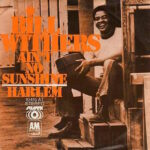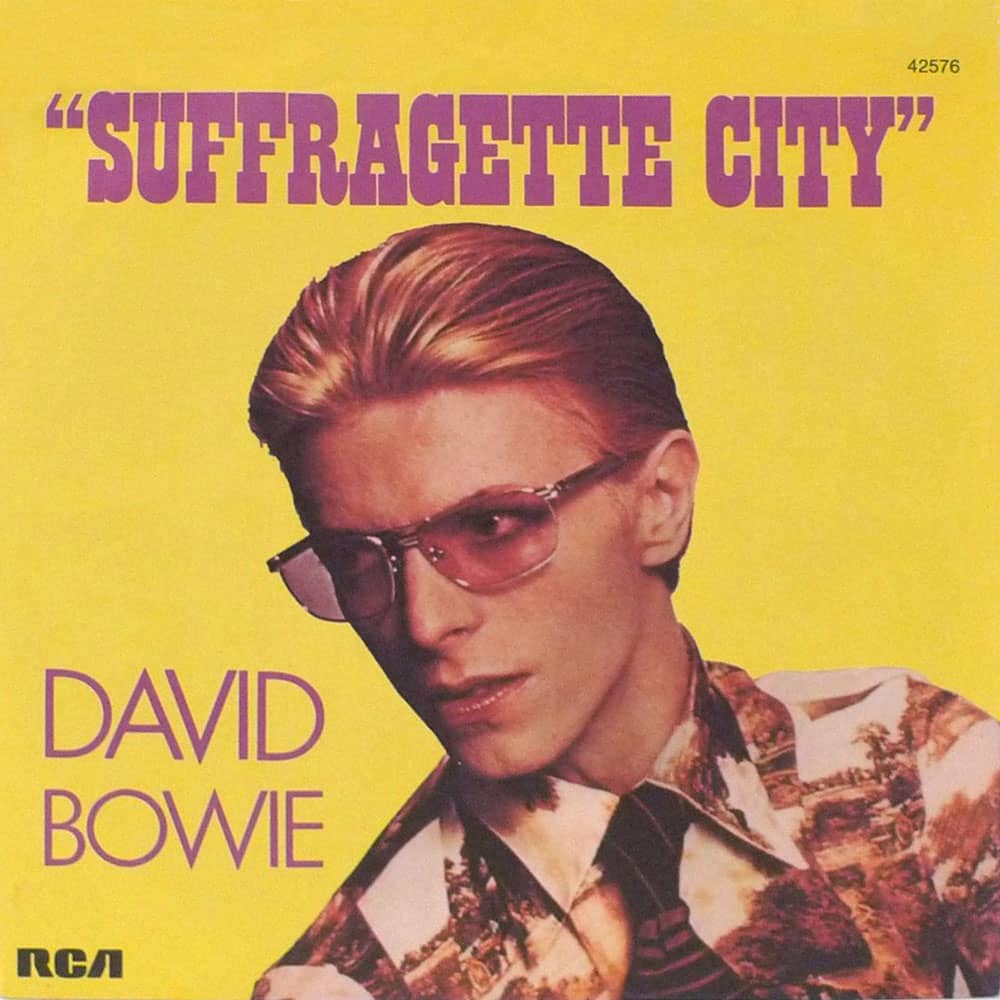 Bill Withers’ “Ain’t No Sunshine” remains one of the most haunting and enduring soul ballads of the twentieth century, a song that distills loneliness, heartbreak, and longing into just over two minutes of music. Released in 1971 as part of Withers’ debut album Just As I Am, the song not only introduced the world to the unique power of Withers’ voice and songwriting but also carved out a place for itself in the canon of timeless classics that transcend eras, genres, and demographics. It’s a song that feels as raw and urgent today as it did the day it was released, an achievement that is especially remarkable when considering how simple it appears on the surface. “Ain’t No Sunshine” is minimal, straightforward, and almost understated in its arrangement, but that very economy of expression is what makes it so potent.
Bill Withers’ “Ain’t No Sunshine” remains one of the most haunting and enduring soul ballads of the twentieth century, a song that distills loneliness, heartbreak, and longing into just over two minutes of music. Released in 1971 as part of Withers’ debut album Just As I Am, the song not only introduced the world to the unique power of Withers’ voice and songwriting but also carved out a place for itself in the canon of timeless classics that transcend eras, genres, and demographics. It’s a song that feels as raw and urgent today as it did the day it was released, an achievement that is especially remarkable when considering how simple it appears on the surface. “Ain’t No Sunshine” is minimal, straightforward, and almost understated in its arrangement, but that very economy of expression is what makes it so potent.
To understand the significance of “Ain’t No Sunshine,” one must first understand Bill Withers himself. Unlike many of his contemporaries in the early 1970s music scene, Withers did not emerge from a musical background steeped in the industry. Born in Slab Fork, West Virginia, in 1938, he grew up in a coal-mining town and lived much of his early life outside of the spotlight. Withers spent years working in factories and serving in the U.S. Navy before ever setting foot into a recording studio. He was 32 years old when his first album, Just As I Am, was released—an age by which most pop stars of the era had already peaked. That late arrival to the music scene gave Withers a groundedness and relatability that was immediately evident in his work. He was not a manufactured star or a flashy performer but a man whose songs reflected real human struggles and emotions with an honesty that listeners instinctively recognized.
“Ain’t No Sunshine” was written after Withers watched the 1962 film Days of Wine and Roses, a dark romantic drama about two alcoholics whose relationship spirals into tragedy. The film left Withers reflecting on the nature of destructive relationships and the pain of love lost, and from that reflection came the song. Withers later admitted he was surprised by the song’s success, considering it one of the “shortest and simplest” pieces he had ever written. Yet simplicity is the key to its brilliance. The lyrics are sparse, telling the story of a man who feels the absence of a lover with devastating clarity. The repeated refrain, “I know, I know, I know…” famously sung 26 times in a row, conveys not just the narrator’s obsessive realization but also the way grief and longing circle endlessly in the mind, looping without resolution.
Musically, “Ain’t No Sunshine” is built around a minor-key chord progression, sparse string arrangements, and gentle acoustic guitar. Booker T. Jones, of Booker T. & the M.G.’s, produced the track and brought in a group of seasoned session musicians including Stephen Stills on guitar and Donald “Duck” Dunn on bass. The result is a recording that is stripped of excess, leaving only the essential emotional core. The lack of ornamentation allows Withers’ voice to carry the weight of the song, and it is his vocal delivery that makes it unforgettable. Withers sings with a weary tenderness, his voice embodying both vulnerability and strength. He does not over-sing or rely on vocal gymnastics. Instead, he lets the raw timbre of his voice do the work, pulling listeners directly into the emotional space of the song.
When released as a single, “Ain’t No Sunshine” became a massive hit, reaching number three on the Billboard Hot 100 and earning Withers a Grammy Award for Best R&B Song in 1972. For a debut artist with no prior fame, it was a stunning breakthrough. The song announced Withers as a new voice in soul music, one whose work would differ from the lush orchestrations of Motown or the funk-driven grooves of James Brown. Withers offered something more intimate, more confessional. His music sounded like a friend quietly telling you about their heartbreak in a late-night kitchen, and “Ain’t No Sunshine” was the perfect introduction to that aesthetic.
What makes the song endure, however, is not just its historical success but its universal resonance. Heartbreak is one of the most common themes in music, yet few songs have managed to capture its essence with the economy and directness of “Ain’t No Sunshine.” There are no elaborate metaphors or sweeping narratives here, just the stark reality of absence and longing. The titular phrase—“Ain’t no sunshine when she’s gone”—is simple enough for a child to understand, but its emotional depth strikes listeners of all ages. The use of negative space—of what is not there—mirrors the experience of loss itself. Just as the absence of the lover leaves a void in the narrator’s life, the sparse arrangement leaves space for the listener’s own emotions to pour in.
Over the decades, “Ain’t No Sunshine” has been covered by countless artists across genres, from Michael Jackson to Paul McCartney, Sting to Eva Cassidy, and even metal and reggae versions. Each rendition highlights the song’s adaptability, its ability to be reinterpreted without losing its core essence. The fact that such a simple composition can carry so many different interpretations is a testament to its strength. Still, it is Withers’ original version that remains definitive, largely because of the authenticity he brought to it. When he sings those lines, it feels less like performance and more like confession.
The cultural impact of the song has also been profound. It has appeared in numerous films, television shows, and commercials, often used to underscore moments of sadness, longing, or heartbreak. Its presence in pop culture has ensured that new generations continue to encounter it, often outside of the traditional channels of soul music discovery. The song’s brevity makes it particularly powerful in film and TV, where it can deliver a jolt of emotional resonance in just two minutes.
But perhaps the most striking thing about “Ain’t No Sunshine” is the way it embodies the contradictions of Withers himself. Withers never embraced the trappings of celebrity, often expressing discomfort with the music industry and eventually retiring from recording altogether in the mid-1980s. He viewed himself as an ordinary man who just happened to write songs, and he remained largely uninterested in the glamour and ego that surrounded many of his peers. That humility comes through in his music. There is no sense of performance for performance’s sake, no need to impress with virtuosity. Instead, there is honesty, restraint, and humanity. “Ain’t No Sunshine” is the sound of a man speaking his truth, unadorned and unembellished, and that is precisely why it endures.
For many listeners, the song serves as a touchstone during their own experiences of loss or heartbreak. Its universality makes it a song people return to again and again during difficult times, finding comfort in the knowledge that someone else has felt the same way. It doesn’t attempt to offer solutions or uplift the listener with promises of healing. Instead, it dwells in the pain, acknowledging it fully. That acknowledgment can itself be healing, reminding listeners that grief and longing are part of the shared human condition.
At the same time, the song’s popularity in pop culture has given it a lighter dimension as well. For instance, its use in comedy skits or playful advertisements demonstrates how its simplicity allows it to be recontextualized. This duality—of being both deeply serious and sometimes playfully employed—only adds to its mystique. It is rare for a song to hold such gravitas while also being flexible enough to exist in lighthearted contexts, but “Ain’t No Sunshine” manages it.
Looking back, it is remarkable that this track was part of a debut album from a factory worker-turned-musician who had no idea how quickly it would change his life. Bill Withers’ story is as inspiring as the song itself: a reminder that artistry can emerge from anywhere, and that sometimes the most powerful art comes not from polished industry machines but from authentic human experience. Withers’ music career may have been relatively brief compared to some of his peers, but the body of work he left behind—songs like “Lean on Me,” “Lovely Day,” and “Ain’t No Sunshine”—have left an indelible mark on popular music.
More than fifty years after its release, “Ain’t No Sunshine” remains as relevant as ever. Its appearance on playlists, in films, and at emotional moments in people’s lives ensures that it continues to live on, generation after generation. The song’s brevity and simplicity are part of what keep it timeless; it does not overstay its welcome, and it never feels weighed down by production trends that could date it. It is pure emotion, distilled into its essence.
Bill Withers passed away in 2020, but his legacy is secure, and “Ain’t No Sunshine” is one of the pillars of that legacy. The song captures the human experience of absence with a clarity and beauty that few other works of art ever have. It is both personal and universal, rooted in one man’s creative spark but resonant with millions. It demonstrates the power of simplicity, the way a few words and a simple melody can cut deeper than the most elaborate composition.
When people hear “Ain’t No Sunshine,” they don’t just hear a song; they feel an emotion. That is the ultimate goal of any artist, and Withers achieved it with stunning effectiveness. His voice, weary yet warm, carries the pain of loss and the longing for love, and it continues to resonate with anyone who has ever missed someone deeply. In its quiet way, “Ain’t No Sunshine” is a masterpiece, a song that speaks volumes without needing to say much at all.
Decades later, its power has not dimmed. Turn it on today, and it still feels immediate, still feels intimate, still feels like Withers is sitting across from you, confessing his heartache. That intimacy is what makes it timeless. Some songs are big and brash, designed to dominate arenas and define generations. “Ain’t No Sunshine” is the opposite: small, quiet, personal, yet infinitely resonant. It is a reminder that sometimes the greatest art comes not from complexity or grandeur but from the simple act of telling the truth.
Bill Withers told the truth in “Ain’t No Sunshine,” and the world has been grateful ever since.


